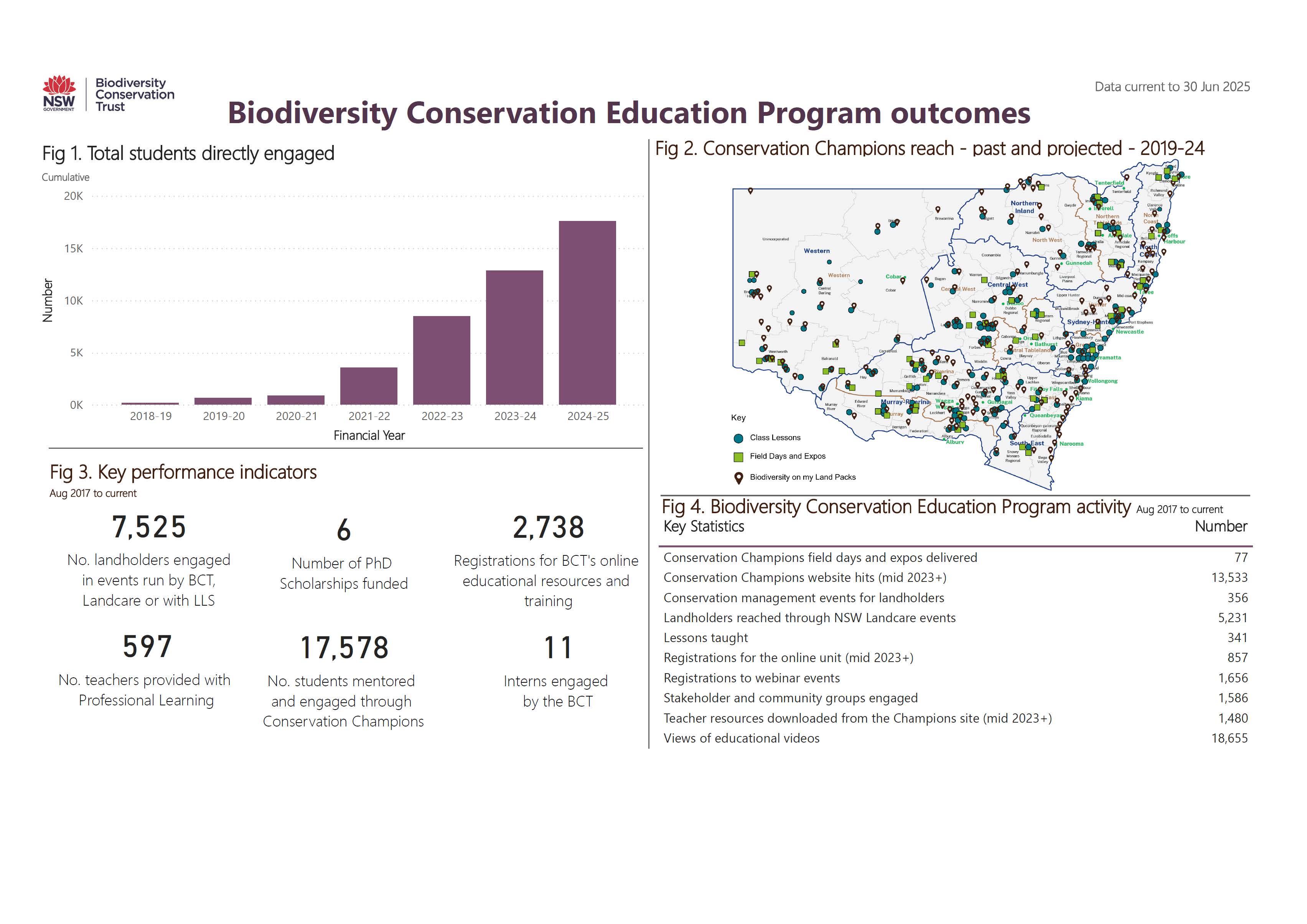
Outcomes
Under the Biodiversity Conservation Act 2016, one of the BCT’s four tasks is to promote ‘public knowledge, appreciation and understanding of biodiversity and the importance of conserving biodiversity.’
BCT Education Program Objectives
The BCT is focusing its education efforts on private land conservation. We are taking an approach of designing and delivering educational projects in partnership with expert organisations, including Landcare NSW, the Australian Museum and Petaurus Education Group.
The BCT’s education projects to date have mentored and engaged more than 17,578 students and provided professional development to 597 teachers across the state. See all Biodiversity Conservation Education Program outcomes below.
Partnerships
The BCT and Landcare NSW are working with regional Landcare networks to raise awareness and support private land conservation efforts across the state.
A co-managed and community-guided program, Partnering in Private Land Conservation Program aims to work collaboratively to build understanding and skills regarding biodiversity, educate private landholders on conservation efforts, and increase participation in private land conservation.
The 2-and-a-half-year program will build on, and further, the successful work already undertaken by the NSW Landcare community and the strength of partnerships and understanding of the importance of biodiversity at a grass roots level.
Key objectives of the project include:
- Building understanding and capacity between the BCT and local Landcare groups to complement each other’s knowledge and skills and plan how to work together.
- Building biodiversity conservation knowledge with landholders through communication and education initiatives. This will be delivered through grant funding to eligible groups who wish to participate.
- Increase the participation of landholders in private land conservation programs.
Regional Landcare Networks Projects
Across the state, Regional Landcare Networks have been funded to develop networking, education and communication activities with private landholders. These projects will build understanding of private land conservation and increase opportunities for regional Landcare and BCT staff and volunteers to meet and share their knowledge and skills.
Private landholders will be provided with opportunities to network, participate in education and training activities and share their stories of conservation on their own land.
Visit the Landcare NSW website to read about upcoming regional projects.
We encourage you to contact Landcare NSW or your regional Landcare Network for more information on how to participate.
The BCT has partnered with the Australian Museum (AM) on their world-leading citizen science project, FrogID.
Developed by the AM, FrogID is a free mobile app for iOS and Android devices that enables anyone to help monitor frogs by recording their calls. Frogs are highly sensitive to changes on land and in water and declines in frog populations are shown to have large-scale, long-term ecosystem-level impacts.
The BCT is encouraging landholders to get involved in this important initiative to help track changes in frog populations, fill knowledge gaps, gauge the effects of environmental change and inform landholders about the state of the environment.
See the resources below for more information and how to get involved.
Learn about why frogs are important for biodiversity and how to download the FrogID app to monitor for frogs on your land
A simple guide to downloading and using the FrogID app
Past projects
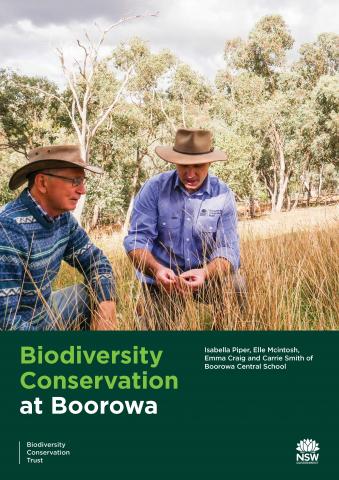
A book by students Isabella Piper, Ella Mcintosh, Emma Craig and Carrie Smith.
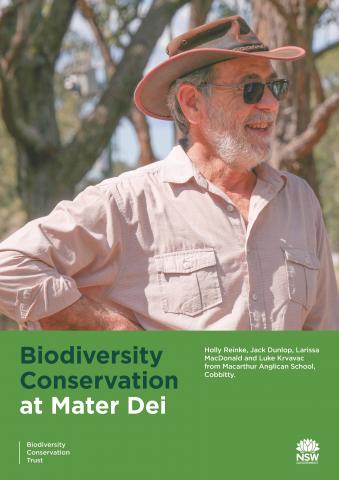
A book by students Holly Reinke, Jack Dunlop, Larissa MacDonald and Luke Krvavac from Macarthur Anglican School, Cobbitty.
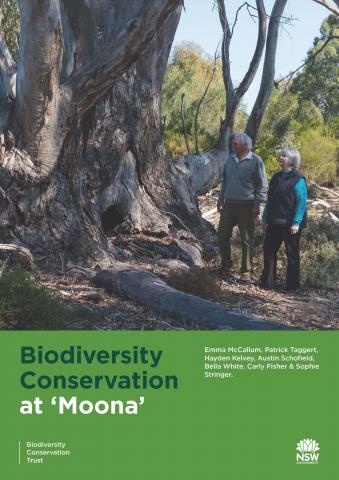
A book by students Emma McCallum, Patrick Taggert, Hayden Kelvey, Austin Schofield, Bella White, Carly Fisher & Sophie Stringer.
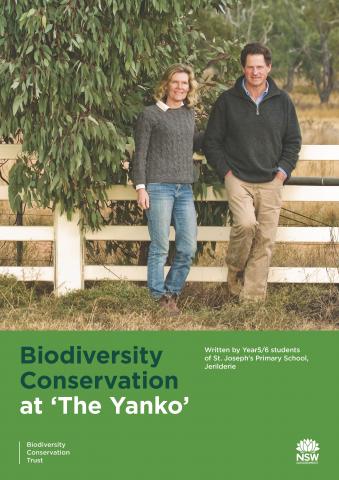
A book by Year 5/6 students of St. Joseph’s Primary School, Jerilderie
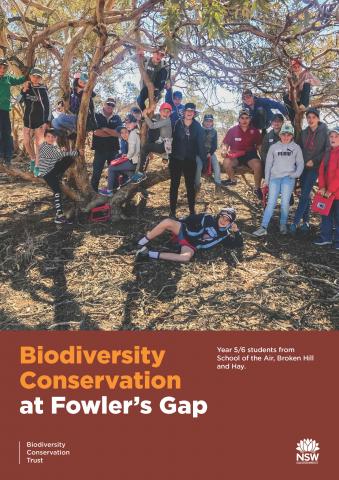
A book by Year 5/6 students from School of the Air, Broken Hill and Hay.

